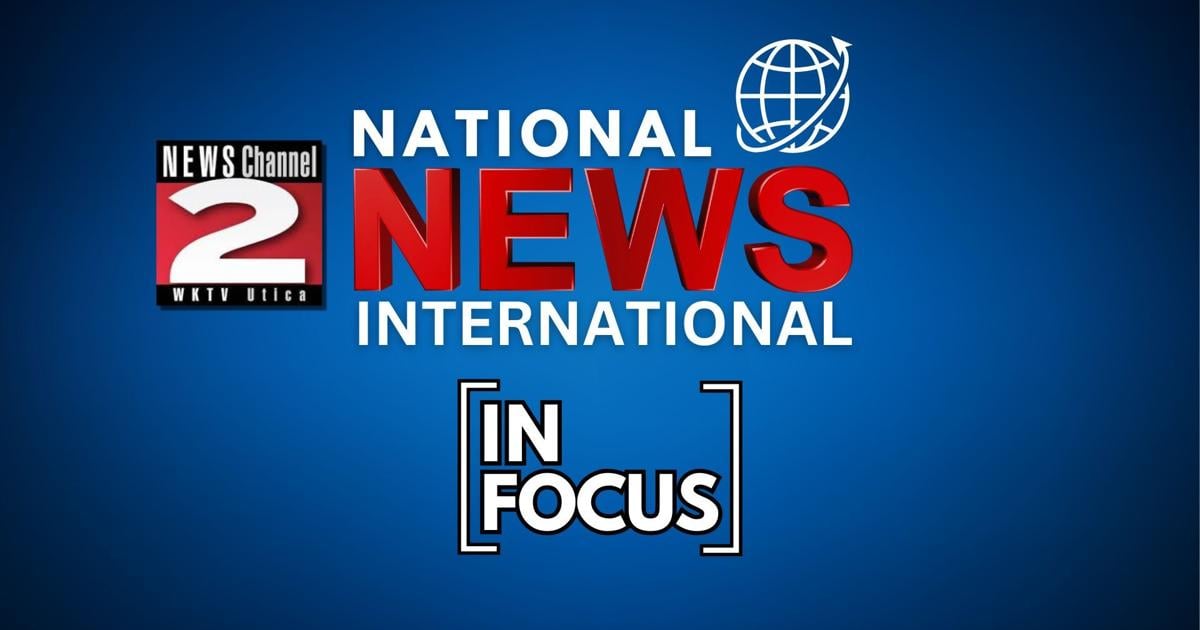State Department spokeswoman Tammy Bruce would not confirm the contents of the cable during a briefing in Washington but said the government would “continue to use every tool we can to assess who it is that’s coming here”, whether they were students or others.
Loading
“Every sovereign country has a right to know who is trying to come in, why they want to come in, who they are, what they’ve been doing, and at least hopefully within that framework determine what they will be doing while they’re here,” she said.
The US embassy in Canberra directed inquiries back to Washington.
The move is one of many that the Trump administration has taken against top US universities, especially Harvard, which president Donald Trump accuses of indulging antisemitism on campus and persisting with affirmative action policies for student admissions.
The government is directing federal agencies to terminate contracts with Harvard, while Trump said he was considering taking away $US3 billion ($4.67 billion) in grants and giving it to trade schools instead.
Harvard has refused to bow to Trump’s demands, instead twice suing the administration, and Trump indicated the university’s intransigence was leading him to take harsher action.
“Harvard is treating our country with great disrespect, and all they’re doing is getting in deeper and deeper and deeper,” he said in the Oval Office on Wednesday (Thursday AEST).
“The last thing I want to do is hurt Harvard. They’re hurting themselves, they’re fighting,” Trump said, making a comparison to Columbia University in New York, which he said was co-operating.
“But Harvard wants to fight. They want to show how smart they are, and they’re getting their ass kicked … every time they fight they lose another $250 million. Yesterday, we found another $100 million.”
The Trump administration has demanded that Harvard supply a list of names of its foreign students, as well as any disciplinary action against them. Trump said on Wednesday that many of these students were “very radical people” from radicalised countries and “we don’t want them making trouble in our country”.
“Let’s be clear, this has nothing to do with combating antisemitism’
Jacob Miller, former president, Harvard Hillel Jewish association
He also suggested Harvard was enrolling too many international students – just shy of 7000, or a quarter of its total – and it should be capped at about 15 per cent. “We have people [in the US] that want to go to Harvard and other schools; they can’t get in.”
David Hogan, an Australian masters student at Harvard, said the problem would go away if the university just did what the administration wanted.
David Hogan, who finished a master of real estate, said his phone had blown up with messages from fellow Australians uncertain about their fate. But Hogan, who is a member of the Harvard Republicans, was more relaxed about the situation.
“This is just classic Trump playing hardball. He does it in every single facet of political life,” he said. “There’s uncertainty and people are scared. People forget – if the university just complies, this threat isn’t acted upon.”
‘We’re all freaking out’
A third Australian at Harvard, who did not want to be identified for fear of retaliation by US authorities, is currently in Europe with fellow students and said there was unease among the cohort.
“We’re all freaking out being, like, ‘can get back into the country?’” she said. She and others had thought about returning to the US early, while the injunction was still in place, but decided not to.
“We don’t really want our lives to become bargaining chips,” she said. “A lot of us have accepted we might become collateral damage. It’s still the right thing for Harvard to [fight back], even if it f—ks up my life.”
Loading
Concerns about antisemitism on campus go beyond just Harvard and the Ivy League, following more than 18 months of protests against Israel and its destruction of Gaza, prompted by the October 7 Hamas attacks.
In an interview with National Public Radio this week, Harvard president Alan Garber, who is Jewish, said his university had made substantial progress in combating antisemitism over the past 12 months.
But the most common and disturbing way antisemitism manifested on campus was social exclusion, he said, which was more difficult to manage and meant people were not exposed to different opinions.
“We shouldn’t be in an echo chamber. Everyone in our community needs to hear other views,” Garber said. “That is one reason why it is so important for us to be able to have international students on our campus. There is so much that they contribute to our environment, and they enable everyone else to open their minds.”
At a campus rally, Jacob Miller, a former president of the Jewish association Harvard Hillel, said the Trump administration was using antisemitism as an “absurd” excuse to target people based on their identity.
“Let’s be clear, this has nothing to do with combatting antisemitism,” he said.
Get a note directly from our foreign correspondents on what’s making headlines around the world. Sign up for our weekly What in the World newsletter.



